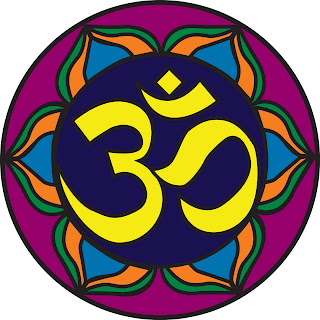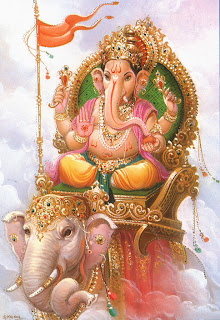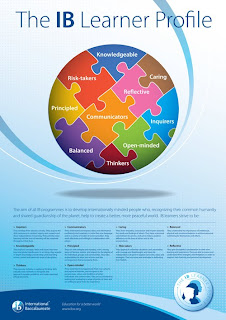Sunday, November 27, 2011
Caesar v.s Augustus
Tuesday, November 22, 2011
Was Caesar a Reformer or a Dictator?
Caesar gained the loyalty and support of his soldiers by having leadership skills and strategy.
He treated the people that he defeated well, and on some occasions he even included them inside the government.
Caesar ended the corruption within the society of nobles.
We know that Caesar brought a sense of order and peace to Rome.
Cities that had been destroyed by the republic, Caesar rebuilt.
He took Rome and strengthened and expanded it
Found jobs for the poor
Granted citizenship to people outside of Rome, from other cities and states.
Through all these improvements and achievement, I believe Julius Caesar bettered Rome. He had ambition to some this might have been taken as a sign of greed, yet it was a drive to better a republic.
Tuesday, November 15, 2011
.Geography and Climate of Italian Peninsula
Italy is a long, narrow peninsula what is in a distinctive shape; that of resembling a high-heeled boot with it's heel towards Greece and it's toe as if it was "kicking" Sicily. Across the very top of this peninsula, are the Alps, these are the mountains which makes Italy cut off from the other European lands. This is not the only mountain range though, there are the Apennines which run on the east of the peninsula from north to south.
In some ways the Italian peninsula has similarities to Greece yet the Apennines mountain range is not as rugged.
Since Italy's mountains can be crossed more easily the result is the peninsula not being divided into many small, separate communities such as Greece. Also the farmland was better for Italy since there was flat land, and could support crops. With the farming, the population of Italy could be more. The climate of Italy was quite mild and throughout the peninsula there is mostly what is called a Mediterranean climate, yet where the mountainous regions are located the climate tends to be quite a bit cooler. The climate and the rich soil which is good for crops is what most probably attracted the first people to come to settle within Italy. These newcomers settled upon the hills and the plains. Within these people were Latins who would then develop Rome. Rome was developed on the Latium plain which is located in central Italy. This is around 24 kilometers up the Tiber River starting from the Mediterranean Sea. This was good for the Romans because it allowed them a close source of water plus a simple enough way to the rest of the world located within the Mediterranean. Yet this was all far so that Rome would not have to deal with the dangers of raids from pirates. This was substantial enough protection but Rome was also created on seven hills which were steep, so they would protect against any enemy attackers. Due to the fact that you could also cross the Tiber River quite easily, Rome became a place in which people who traveled north and south within western Italy and merchants upon the west Mediterranean sea could stop.
Blogpost #1: Legends of Rome
Rome was actually founded. Remember to include at least one image!
The first legend was of was of twin brothers Remus and Romulus abandoned near Tiber River rescued by a wolf, but then raised by a sheep hearder, they then went on to build and create Rome in 753 B.C. Remus would constantly tease Romulus over a wall he was creating. Eventually anger bubbled inside of Romulus and he murdered his brother and he became then king of Rome naming it after himself.
The second legend can be traced back to to an epic by a famous Roman poet named Virgil. The epic is the Aeneid and is about the Trojan hero Aeneas. After the Greeks had captured Troy he sailed with a band of followers across the Mediterranean. After their extensive journey, they landed in Tiber. Then through marrying the local king's daughter he united the Trojans and Latins, which were the local people and he then became the "father" of Rome.
The actually theory historians believe in is that Latins lived in the area Rome was to be as early as 1000 B.C but in around 800 B.C to 700 B.C they banded together for protection, thus founding Rome.
Wednesday, October 26, 2011
Alexander "the Great?"
Want To Know It. "Why was Alexander the Great so 'Great'?" Want to Know it. N.p., n.d. Web. 26 Oct.
2011. <http://wanttoknowit.com/why-was-alexander-the-great-so-great/>.
BBC Writers. "Alexander the Great (356-323 B.C)." BBC - History. BBC, n.d. Web. 26 Oct. 2011.
<http://www.bbc.co.uk/history/historic_figures/alexander_the_great.shtml>.
Friday, October 21, 2011
A Day in the Life: Ancient Greece
Tuesday, October 11, 2011
The Spartan Way
Similar to the ancient Greeks in Athens, the Spartans held certain traits or qualities that they thought there people should encompass; strength, deceit of an enemy, and a fearlessness of death. Maybe it was believing in these traits that made Sparta the most powerful city-state for over 200 years, but it was also because of Sparta's ruthless and all powerful army. Yet what was the reason for such a powerful army? The main reason for Sparta's need for an strong army was it's neighbor Messenia, and there relationship. When Sparta conquered Messenia, they gained control over vast amounts of fertile land, they then
 proceeded to take half of all food grown by the people of this land. Logically, the people of Messenia were not happy about this treatment, so they rebelled. This sparked decades of conflict between the two city-states. This pushed Sparta to create a strong and "indestructible" army. Along with conflict between Messenia, Sparta also had a famous feud with another rival, Athens. With it's tough army to thanks Sparta dominated ancient Greece 600 B.C-371 B.C. Lycurgus, a great lawgiver, created Spartan laws that made it the all powerful city-state we know about today.
proceeded to take half of all food grown by the people of this land. Logically, the people of Messenia were not happy about this treatment, so they rebelled. This sparked decades of conflict between the two city-states. This pushed Sparta to create a strong and "indestructible" army. Along with conflict between Messenia, Sparta also had a famous feud with another rival, Athens. With it's tough army to thanks Sparta dominated ancient Greece 600 B.C-371 B.C. Lycurgus, a great lawgiver, created Spartan laws that made it the all powerful city-state we know about today.Growing up in Sparta
Out of the men in Sparta, 10% were what were called equals, there job was only that but to serve as soldiers to the army. Through an equals life, every bit of it was controlled by the government or traditions such as, when the baby was born a city elder would inspect it and if there was signs that he was sickly, they would leave them to die on a mountainside. Another example, at age seven, military training began for boys and they were taken from there families. The Spartan military training was ruthless, a trainee was taught to listen and obey any order given and to put up with quietly or endure pain. Trainees were also not supposed to mak even the slightest mistake or show any sign whatsoever of suffering. "The boys also steal whatever provisions they can, there by learning how to pounce skillfully upon those who are asleep or keeping guard carelessly, but a boy is beaten and goes hungry if he is caught." There were other tough rules that the Spartan's had, such as luxury was looked down upon and the food actually tasted bad on purpose! A visitor who once came to Sparta once said, "After eating Spartan food, he understood why they are so willing to die in battle." Since the main job of a man in the Spartan culture was to be a soldier, the women had the task of having children. The women of Sparta had to be equally athletic as men, yet there were fewer restrictions for them then for the men. The men of Sparta, even though it was a though one, only had one job, to be a soldier. Since the city-state of Sparta was not constantly fighting in war, the Spartan men had a lot of free time, "Except when they were [fighting battles]" one historian wrote "all there time was taken up by choral dances, festivals, feasts, hunting expeditions, physical exercise, and conversation."
The end of the Spartans
Loyal and powerful army and soldiers are what created the great city-state and it is said that "opposing armies crumbled at the very sight of Spartan soldiers marching toward them" yet this was because all the people knew that Spartan soldiers were expected to fight till death. Athens was conquered by Sparta in a war called the Peloponnesian war which lasted from 431-404 B.C. Athens, being conquered, lost the war and never managed to get back to the zenith it was at before. Yet good things do not last for to long, because than in 371 B.C, the end of Sparta's leadership of Ancient Greece came when it was dominated by Thebes.
Thursday, October 6, 2011
The Ancient Olympics from The Olympic Games by Theodore Knight
 |
| Poster for first modern Olympic Games |
"One story tells how the mother of a young runner named Pisidorus did just that. When the young man's father died while training him, the mother took over the training and then attended the race disguised as a man. When Pisidorus won the race, the mother's cries of joy were so loud she was discovered. She was not put to death, however. To this day, no one knows why."
Yet by the 128th game women were finally allowed to participate and watch the games. All competitors had to swear under an oath that they had been training for these games ten months prior to the actual games. Yet the Olympics were mostly for the wealthy, since they had to be able to provide for travel and, if they won, a lavish banquet for all. There were at the beginning, only few games that could be played at the Olympic games, but as the years progressed there were a variety of different things added. Things such as footraces, chariot races, wrestling, boxing, pancratium and tathlon. The Roman Empire conquered the the Greek Empire around the time 100 B.C, the Greek way of life and their games changed, the Romans turned them into something brutal, and the Olympics simply lost the whole idea of celebrating patriotism and religion." The Games themselves became brutal forms of entertainment." Some people started to complain about the simple prize of an olive branch for winning them games and money started to become involved. This sparked bribery and cheating in the games. The Olympics games had continued through well over 12 hundred years but it ended and then did not start until 15 hundred years after and was revived again by Baron Pierre and the first Olympic games in the modern world were held in Athens, Greece during the year 1896.
Knight, Theodore. The Ancient World. New York City: n.p., 2010. Print. Article:
The Olympic Games
Wednesday, September 28, 2011
Values in Ancient Greece
In early Greek culture there were 8 main values:
Athleticism
Hospitality
Justice
Teamwork
Ingenuity
Respect
Loyalty
Intuition
When reading the Odyssey the most frequently appearing value was Ingenuity, it came up a lot through all the excerpts because a lot of plotting was done by the main characters. Yet Intuition was one that came up the least, it was only prevalent in the story of Odysseus and Circe. These values were important because they were what encompassed a good human, a lot like the IB learner profile we have now. A person who displayed all of these traits would be praised about becoming all you can become. They were also important because they became the foundation of Greek society, so that there was a goal for each person. This goal was each one of these values.
Monday, September 26, 2011
Mycenaens and Minoans
 | ||
| Water pipes at Minoan Palace |
 |
| Mycenaean Sword |
Tuesday, June 7, 2011
End of Year Reflection

Friday, May 27, 2011
Taj Mahal
Thursday, May 26, 2011
Mapping Project: India

 These are our maps.
These are our maps.For this project we had to create three maps of India; climate, elevation and a 3D physical features/elevation map. Look at all three of the maps,
Thursday, May 19, 2011
LORD GANESH
Lord Ganesh, or Lord Ganesha is the elephant headed god. Ganesh rose to being the lord of all things that exist by triumphing over his brother, Kartikay, in a contest. The contest was a race around the whole universe, yet Ganesh did not race like his brother, he simply walked around his mother and father, Shiva and Parvati, as the center of the universe.



Tuesday, May 17, 2011
Lost City of Mohenjo-Daro
Well-planned features tell us that Mohenjo-Daro was a well planned civilization. They were skilled and made there city clearly thinking about benefits for the people. It was located in modern day Pakistan around the third millennium B.C, but who inhabited this city we don't know. As Gregory Possehl, an Indus expert, says, "It's pretty faceless" There is no clue to the religion, language, or people in the city of Mohenjo-Daro, neither is there evidence of a certain government or ruling system. If there was no evidence of a ruler, it was most likely that the city was governed as a city-state. Mohenjo-Daro, from evidence was a very "neat" and organized city. Pottery, copper, and stone tools were mainly used and seals and weight say that there was a system of trade that might have been tightly contained. Artifacts such as ivory, lapis, gold beads, etc. were found, suggesting wealth and trade in the city. Adding to the theory of cleanliness, wells were found throughout the city and every house included a bathing area and drainage system



Wednesday, May 4, 2011
Ancient Egypt Unit Reflection

In this unit we studied Ancient Egypt, we looked at the geography and a little bit of the culture.
In the IB learner profile there are 10 profiles these include:
- Caring
- Balanced
- Open-Minded
- Reflective
- Principled
- Communicator
- Risk-Taker
- Thinkers
- Inquirers
- Knowledgeable
In this unit we did not use all the learner profiles, or cover them all but we did use a few of them in our work.
- Open-Minded- I think through the unit we had to be open-minded because there were rituals, traditions and certain things that ancient Egyptians did where we had to stop and think "Yes, this might be strange but it was part of their culture." We couldn't just label things as "stupid" or "dumb" right away we had to think about it from a different point-of-view.
- Knowledgeable - Through this unit we also had to be knowledgeable about the different things that we learn. Even though this profile is kind of obvious it was very important. Being knowledgeable means that you can take information in and then remember it using it for other tasks that require knowledge about the subject. One time in the unit that presented our knowledge on ancient Egypt, was playing the Jeopardy game.
- Inquirers - I think through this unit we had to be inquirers because as the last project of Ancient Egypt we had to pick something about Egypt and then create a presentation about it. To learn about the topic that we picked we had to be interested about it and have the want to find out more about the topic.
In IB we also have the Approaches to learning categories these include:
1. Organizational
2. Collaborative
3. Communication
4. Information Literacy
5. Reflection
6. Problem Solving and Thinking Skills
Through this unit I think that the approaches that we have covered include:
1. Organizational – Through this unit we had to be organized, this is because we had quite a few small projects going on. We had to organize time so that we could be efficient and get our work done while making it good quality. We also got a lot of papers that we had to keep organized so that when we needed something specific we would have it with us.
2. Collaborative – We only had one project where we needed to collaborate but it was a project that we didn’t really have that long of a period to work on, even though it was quite simple, we had to work on the project together quickly and well.
How did the physical environment affect the development of civilizations?
In every civilization the surroundings of the physical environment effect the development because physical environment can either kill a civilization or build it up. An example is a civilization that would start in the desert compared to one that starts near a lush, green river the civilization near the river is definitely going to develop much faster and become so much better than the civilization that starts in the desert. This is because the civilization near the river has so many more advantages and “gifts” than the desert has. A river can provide food for people, irrigation, land that is fertile for farming and much more. The physical environment can affect the civilization because it either gives the civilization more and builds it up or it take away, causing things like droughts, or famine.






